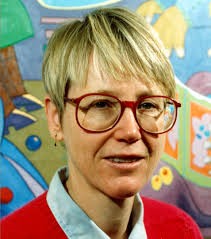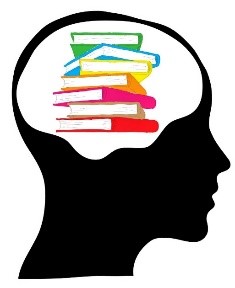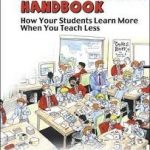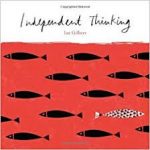Imogen (Year 9) looks at the connection between money, power and the monarchy in this short presentation arguing as to whether we can see money as the root of all evil.
Watch below:
Imogen (Year 9) looks at the connection between money, power and the monarchy in this short presentation arguing as to whether we can see money as the root of all evil.
Watch below:
Ms Mari Nicholas, Head of Academic Scholarship at WHS, looks at how WHS is scholarly and why we should be lifelong learners.

From Thales of Miletus, Zarathustra and Confucius to Nancy Cartwright, Kwame Anthony Appiah and Judith Butler, over the centuries, philosophers have debated and cogitated the big questions. According to the University of Oxford, the study of Philosophy develops analytical rigour and the ability to criticise and reason logically. These skills can be applied to questions ranging from how we acquire knowledge and form moral judgements to central questions in the philosophy of religion. (Ox.ac.uk, 2019)
An expert is a person who is knowledgeable about or skilful in a particular area. Being scholarly means having or showing knowledge, learning, or devotion to academic pursuits. One could argue, therefore, that one does not need to be a philosopher in order to be an expert or indeed scholarly. We can all develop knowledge, become skilful and devote ourselves to academic pursuits without having to give up the day job!
There are myriad benefits of lifelong learning, not least the joy of discovering something new. Every day is a school day, perhaps more for teachers than most, as rarely a day goes by when one does not learn something new from the girls we are fortunate enough to educate.
Major advantages of continued learning include improving our mental and physical health: it fosters a sense of identity, an ability to cope and a sense of purpose. Studies have shown that learning leads to a greater sense of wellbeing and continued education in life contributes to a ‘cognitive footprint’, which may delay the onset of dementia. Physical health is also improved and longitudinal studies have shown a lower risk of coronary heart disease, higher probability of cervical screening and improved nutrition. In fact, learning as a whole has an impact on mortality, although one can attribute this evidence to both early as well as adult education.
Adult learning has a positive effect on your employability, raising aspirations, increasing earnings and improving job satisfaction. Adult learning fosters a capacity to be assertive and to collaborate with others in the workplace (Billett, 2014). It is beneficial for your employer too, increasing productivity, employee commitment and resulting in a slower turnover of staff.
Community learning and vocational training are associated with improved community engagement, local involvement and volunteering (Bosche and Brady, 2013; Feinstein et al., 2008). In particular, adult literacy and numeracy have a positive impact on communities, leading to greater tolerance of others and increased trust in people of different nationalities and religions. Finally, adults who participate in learning themselves are more likely to engage in their children’s education, improving outcomes. Where levels of inequality are high, this effect is particularly pronounced (OECD, 2016).
 Alongside high-quality provision in lessons, the academic stretch programme challenges our learners throughout the school.
Alongside high-quality provision in lessons, the academic stretch programme challenges our learners throughout the school.
Girls in Years 7 and 8 attend Wonderers sessions where departments take their education beyond the curriculum and enjoy learning for its own sake. This academic year, a diverse range of subjects has been covered, from Classics “The link between myth, poetry and art”; Product Design “Principles behind designing and the utility of products” and Maths “The Maths behind knitting”.
Tea and T’inking is an informal discussion group where older students come together to hash out the big ideas. Topics covered so far this year include: politics “what we might consider as an ideal political system and the deficiencies in our system”; general knowledge “what do we mean by general knowledge, how is it useful and how might it be applied?”; modern linguistic and visual culture “Why are young people attracted to memes, what do they mean and what is their importance?”.
 Our robust Explore and Rosewell lecture series welcomes external speakers to challenge and provoke those girls in Years 9 to 13 to think more deeply both within and without their subject specialism. Parents, teachers and partner schools are welcome at these lectures. Our external speakers have included: Janet Henry, Chief Global Economist for HSBC, “Diverging fortunes”; “In conversation with” Gillian Clark, poet, playwright,
Our robust Explore and Rosewell lecture series welcomes external speakers to challenge and provoke those girls in Years 9 to 13 to think more deeply both within and without their subject specialism. Parents, teachers and partner schools are welcome at these lectures. Our external speakers have included: Janet Henry, Chief Global Economist for HSBC, “Diverging fortunes”; “In conversation with” Gillian Clark, poet, playwright,  editor, broadcaster; Prof Vicky Neale, Whitehead lecturer at the Mathematical Institute, “Closing the Gap, the quest to understand prime numbers”; Dr Guy Sutton, “Mind and brain in the 21st Century”.
editor, broadcaster; Prof Vicky Neale, Whitehead lecturer at the Mathematical Institute, “Closing the Gap, the quest to understand prime numbers”; Dr Guy Sutton, “Mind and brain in the 21st Century”.
An integral part of being a member of staff at WHS is continual study and the development of expertise in their field. Regular training from Trust or external providers to in-house Twilight sessions cover a range of topics from “How to become a Head of Department” to “Giving feedback on exams, tests and assessments” and allow staff to develop professionally, leading to benefits for themselves, the students and the school.

In addition, a group of staff from across the school make up a professional reading group, Brain Books. Every half term they discuss books in education that relate to their role within the school. These discussions inform their teaching, feed into departmental discussions and might eventually change the way we teach and learn at WHS. “Teaching Backwards” by Andy Griffith will be the next book to challenge preconceived notions of how excellent teaching and learning should look.
 A discussion of “The Lazy Teacher’s Handbook” by Jim Smith drew the following comments:
A discussion of “The Lazy Teacher’s Handbook” by Jim Smith drew the following comments:
 “Independent Thinking” by Ian Gilbert elicited the following:
“Independent Thinking” by Ian Gilbert elicited the following:
In summary, is it the end for experts? No. Lifelong learning has a huge impact on our health, wealth and happiness. I believe we should be scholarly and become experts despite what others may think.
Billett, S., 2014. Learning in the circumstances of practice. International Journal of Lifelong Education, 33(5), pp. 674-693.
Bosche, B. and Brady, B., 2013. Benefits des community learning: Ergebnisse aus Irland, in Benefits of lifelong learning. DIE Journal for Adult Education, 1, pp. 30-34.
Feinstein, L., Budge, D., Vorhaus, J. and Duckworth, K., 2008. The social and personal benefits of learning: A summary of key research findings, London: Institute of Education, University of London.
OECD, 2016. The productivity-inclusiveness nexus. Available at: http://www.oecd.org/globalforum-productivity/library/The-Productivity-Inclusiveness-Nexus-Preliminary.pdf
Ox.ac.uk. (2019). Philosophy and Theology | University of Oxford. [online] Available at: https://www.ox.ac.uk/admissions/undergraduate/courses-listing/philosophy-and-theology?wssl=1 [Accessed 13 Mar. 2019].
Mr Dan Addis, one of our Joint Heads of Academic Scholarship, discusses the benefits of considering the opinions of others, as offered through our weekly Tea and T’inking club here at WHS.
It is very reassuring to read an article, listen to a podcast, or read a blog that asserts your own opinion at you. “Thank goodness! I was right all along!”
 That’s the important thing isn’t it? Being right. Now, you have evidence backing your own view. You are not the only person who thinks this way. Other people important enough to be published in some medium think this way. Therefore, they must be right and you must be right. Moreover, all you see is the same information reiterated in your News feed, Instagram account, or amongst your friends. This corroborates your view. The opinion you had which was a small delicate thing is growing and hardening, becoming a wall to keep your psyche safe from thoughts that it assumes might damage it. Your confidence grows. Your surety of opinion flourishes.
That’s the important thing isn’t it? Being right. Now, you have evidence backing your own view. You are not the only person who thinks this way. Other people important enough to be published in some medium think this way. Therefore, they must be right and you must be right. Moreover, all you see is the same information reiterated in your News feed, Instagram account, or amongst your friends. This corroborates your view. The opinion you had which was a small delicate thing is growing and hardening, becoming a wall to keep your psyche safe from thoughts that it assumes might damage it. Your confidence grows. Your surety of opinion flourishes.
In a world where fragile mental health is much more prevalent (or at least people are becoming more aware of it), this confidence in one’s opinion can be a positive thing. The community feel of shared opinion is also very intoxicating. Not only do we feel that we are right and are comforted by the presence of others with the same opinion, we also have a sense of community in a world so open it can be intimidating. The comments section of a blog post or a reddit chain can become a supportive group of like-minded friends. Positive isn’t it?
Well, I would argue no.
I’d like to refer back to the wall analogy I used earlier. Walls are fantastic for protection from outside forces that might harm us. They make us feel safe and secure. If you speak to a person without any walls to protect them, then you might recognise how valuable walls can be. But speak to a person who only has walls and no way of escaping them. Then walls become an enemy, a blight, the cause of pain, suffering and depression. The same can happen in our mind. By constantly reiterating a certain set of values and opinions, we can feel comfortable, but we can also become shut in, closeted away from information and facts that might help us grow and progress. The outside of the mental walls becomes the enemy, the dangerous, the damaging.
We approach these outside opinions in several ways. Mostly we ignore them, maligning them as idiotic or even pitying those who hold these views that cannot possibly be right. Sometimes we attack them, aggressively shouting down those who hold these views either for their stupidity or for their ignorance. We are building these walls higher and higher to differentiate ourselves from those outside.

However, there is another option: opening the metaphorical door.
Include other thoughts and ideas into discussion. Acknowledge other people’s views with openness and desire to learn. No one view is 100% correct. There are many shades of grey in most issues and having an awareness of them not only increases your knowledge, it helps you have discussions with others with opposing views.
Understandably, there are some issues with this approach. If you try to engage with someone who holds an opposing view but is not willing to compromise or discuss evenly, then it can be trying. It is tiresome to review points over and over and not reach a conclusion. In addition, it can be difficult to break this self-perpetuating cycle of distrust between opposing views.
Furthermore, the main issue is usually to do with ignorance not idiocy. The only cure for ignorance is learning, but the negativity that people of certain opinions have towards those who do not automatically agree can be suffocating. It is understandable that one might want to stay in their protective walled opinion fortress. What is needed is a safe space where you can learn information contrary to your held beliefs. A space where any question is acceptable. A space where you can discuss issues from a variety of viewpoints in a positive and constructive way.
Tea and T’inking can be this space for you. Come along challenge your preconceptions. At Wimbledon, our metaphorical walls are the socialist liberal middle class sphere that the vast majority of us inhabit. Burst that Bollinger Bolshevik Bubble, not in an aggressive manner but calmly, with a cup of tea.
Tea and T’inking is a weekly club held at WHS for girls in Year 9-13 who are invited to come along, have a cup of tea, and discuss a variety of topics, opening minds and creating debate. Please see Mr Addis if you’d like to pop along to the next session.